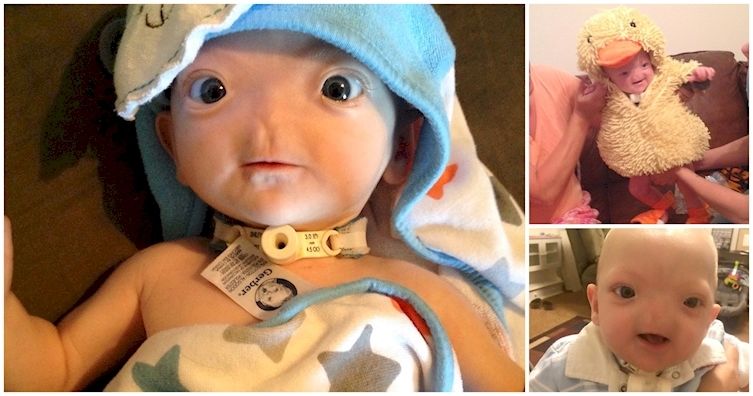לצפייה בתמונה
לחץ כאן
לצפייה בתמונה
During her pregnancy, when Brandi McGlathery underwent routine tests, everything seemed fine with the fetus. The examinations revealed nothing unusual, and Brandi was confident it would remain so after birth. However, when her son Eli was born without a nose, she realized how unpredictable the professional knowledge of doctors can be. "They told me it was a rare case, happening once in every 150 million normal births," Brandi recalls.
Of course, the doctors' answer did not reassure her, and rightly so. How was Eli's condition not detected during the numerous tests Brandi underwent during her pregnancy? True, it is a rare case, but it is a condition known to modern medicine, even having the name Congenital Arhinia. "I love my son as he is and am proud to be his mother," Brandi wrote on her Facebook page, which aims, among other things, to raise funds for the surgeries Eli will need. "The night he was born, I was scared and confused. I called every 15 minutes to check if my child was still alive."
The main problem for babies born with this rare condition is that they cannot eat and breathe simultaneously. Eli has already undergone a minor surgery for a temporary solution, in which doctors created a kind of indirect path in the trachea for Eli to breathe. And what do we learn from this story? Two things: first, how important it is to accept every person, no matter what body they are confined in, as a person. If you are fortunate enough to be a parent, it is critical to teach children to love those different from them, notwithstanding descriptors like strange, scary, and other terms children often use.
The second lesson is the importance of saying thank you, every day, for everything we have (or don't have). May we have that merit.
.Use quotes in order to search for an exact term. For example: "Family Purity", "Rabbi Zamir Cohen" and so on
 Little and adorable Eli, born without a nose (Photo: Facebook)
Little and adorable Eli, born without a nose (Photo: Facebook)